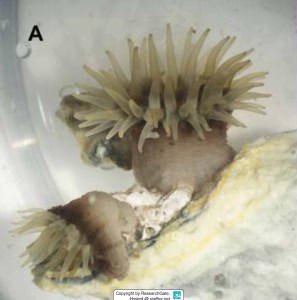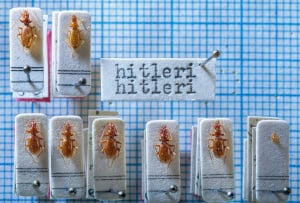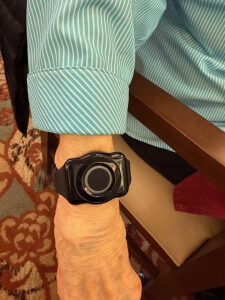Introductions: The Complement has a new contributor/staff member, Milt Friedman. Milt brings to us a wide range of skills and ideas. One is a commitment to publication of resident contributions, and another is his love of poetry. We hope that the present and potential poets at RVM will respond to Milt’s appeal and allow us to introduce poetry contributions into our regularly published features.
An invitation to write a poem
by Milt Friedman
Before Rap, poems sprang from the quiet solitude of the soul. Whether in nature, the past, or the wistful being of the moment, poems carried a certain strain of thought, sometimes ecstatic, sometimes blue. Before Rap, people wrote poems to express their inner perplexity, their multiplicity, their paradox of joy.
Jazz is improvised and springs from this same poetic being, and jazz, combined with social rage, brought us to Rap. Us, those of us, who feel that rage, in this time of perplexity and paradox.
Poems have the potential to free our words, to free our worlds, to free us. And so, I am moved to invite you to express the ecstatic, the blue, the perplexity, the rage, and any of the multitude of moods that rise to being in you.
I invited a couple of friends to write a poem to share, and they shied away, thinking that they did not know how, or just couldn’t. And so, I began to consider how many people do not think they can write poetry, not like Walt Whitman or Mary Oliver. Yet writing a poem may not be that hard if we keep in mind that we don’t have to be Whitman or Oliver, and in fact, we are not. We are, simply us, and we, each of us, can write from the quiet solitude of our soul.
Imagine letting your mind drain of words and images, close your eyes, try to hear your heart, or your breath. And notice whether an object appears in your mind. Perhaps from your present life, perhaps from the past. Let that object dwell in your consciousness, accreting memories, feelings, perhaps regrets or joys. See which feeling is strongest. Use the object as your first line, the feeling as the second, the story that comes next, made up or remembered, the story is the dream that will travel through the poem until it ends. We may, along the way, be joined by others, or other objects, trees, sky, breezes, or rooms. Wherever the dream takes us until it ends. This is only the first draft. It may be enough to show to a trusted friend.
And this is only one way to compose a poem. There are endless other ways too, but this is one that you can try out if you want. Because I assure you that this will work. An object will appear. Memories and feelings will arise, poignant and, rarely, comforting. And the poem, the dream, will take us, if we are willing to let go of the moment’s obsessions and attachments. There is after all, only you, but the you that writes the poem will always reach out to the world, to request or demand more. This is the poem that our minds write, that we can use to reach out.
And so, I am moved to invite you to express your dream.
This is the poem that I wrote as I explored this way to write a poem:
The horseshoes on the horses ahead of me clacked on the rocky trail.
Grief overwhelmed me as I remembered my father’s touch
On my shoulder.
He died.
Leaving me to manage the farm, too young by far.
The sun was just shuttling through the leaves turning to autumn.
In the morning we rose early for this ride.
If you like, try it out, and perhaps, if you are willing, send it to us or enter it in the comments section, to connect.




 If you’re looking for a place to exercise your writing skills, how about talking to Bob Buddemeier of The Complement to see what they have to offer. Feeling a bit stressed out lately? Seek out Nancy Ottis whose Meditation Group will offer a place to calm your mind, or how about asking Arlene Ching about the benefits of Rooftop Gardening? Curious about the origins of your family tree? Rita Derbas and her Genealogy group could Sherlock your way down the right path. And who would have thought Paul Ackerman’s Rogue Rover’s RV group existed? But he’s there as well. Feeling ambitious? How about starting or reactivating a group that is in need leadership? We have those too!
If you’re looking for a place to exercise your writing skills, how about talking to Bob Buddemeier of The Complement to see what they have to offer. Feeling a bit stressed out lately? Seek out Nancy Ottis whose Meditation Group will offer a place to calm your mind, or how about asking Arlene Ching about the benefits of Rooftop Gardening? Curious about the origins of your family tree? Rita Derbas and her Genealogy group could Sherlock your way down the right path. And who would have thought Paul Ackerman’s Rogue Rover’s RV group existed? But he’s there as well. Feeling ambitious? How about starting or reactivating a group that is in need leadership? We have those too! program. Or would you like to provide the homeless with a bit of comfort? Ruth Draper with Sleeping Mats for the Homeless may be right up your alley!
program. Or would you like to provide the homeless with a bit of comfort? Ruth Draper with Sleeping Mats for the Homeless may be right up your alley!

 Yaktrax is the name of a brand of wear-them-on-your-feet traction devices, but like Kleenex and Xerox the brand name has been generalized to refer to the whole class of such items, some of which are at least as good as the named brand. The picture illustrates one of many styles. What should you get and how do you get some? [Editorial Opinion] (1) Go to the online Amazon catalog, type Yaktrax into the search field and look until you find some that say they are for walking on snow and ice AND have a cumulative user rating greater than 4.5. Prices range from <$20 to the sky’s the limit. Search for “Yaktrax size chart” to relate your shoe/boot size to the S-M-L choices — but adjust your ordinary shoe size to account for the difference in outside dimensions between the shoe and you winter boot. (2) Not an online shopper? Take the boot that you would wear them on, go to REI and tell the salesperson what you want. And expect to pay a little more. Remember, concrete or tile surfaces may damage the Yaktrax, which in turn may damage wood or composition flooring.
Yaktrax is the name of a brand of wear-them-on-your-feet traction devices, but like Kleenex and Xerox the brand name has been generalized to refer to the whole class of such items, some of which are at least as good as the named brand. The picture illustrates one of many styles. What should you get and how do you get some? [Editorial Opinion] (1) Go to the online Amazon catalog, type Yaktrax into the search field and look until you find some that say they are for walking on snow and ice AND have a cumulative user rating greater than 4.5. Prices range from <$20 to the sky’s the limit. Search for “Yaktrax size chart” to relate your shoe/boot size to the S-M-L choices — but adjust your ordinary shoe size to account for the difference in outside dimensions between the shoe and you winter boot. (2) Not an online shopper? Take the boot that you would wear them on, go to REI and tell the salesperson what you want. And expect to pay a little more. Remember, concrete or tile surfaces may damage the Yaktrax, which in turn may damage wood or composition flooring.






